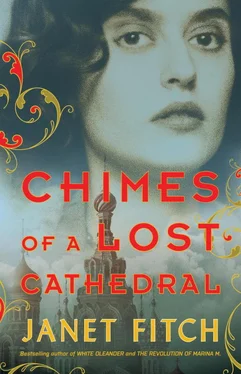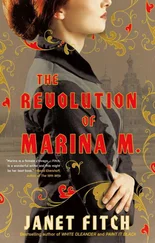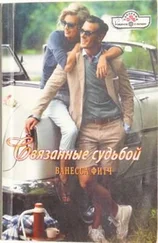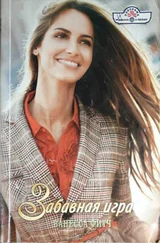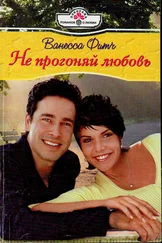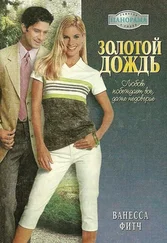Married.
Sweat poured off me in rivers, even in this unheated office. The woman worked in knitted gloves, coat and hat, the tips of her gloves cut off. In demeanor, I did my best to straddle the line between Bold Proletarian and Supplicant Peasant as I described the robbery on the train from Petrograd. A bourgeois bagman (describing Kolya in every specific) had made much of me, and then stolen everything—my papers, my money. I hadn’t even known it was gone until disembarking at Tikhvin, when I found a bag of small rocks and an old calendar instead of my belongings. To weep for this woman was no difficulty. Then I praised the widow Korsakova in quasi-religious tones, which I then “remembered” was un-Bolshevik. What a performance. Komissarzhevskaya herself would have called for an encore.
“And where is your husband now?” asked the woman, who looked like a raw-boned cow.
I shrugged. “Don’t know. He was leaving for Moscow last time I saw him. Looking for work in the Information Section. He has a friend there. He was going to send for me, but I waited and then got tired of it. Maybe he’s in the army now, who cares. Anyway, I thought, it’s a new world. I can go places too, can’t I?” Trying to breathe energy through my pores. The class-winnowing process had reached the provinces, and I had to consolidate my proletarian status. My mouth was dry, my hands shook. Three nights ago, I heard in the queues that the local Cheka had boldly arrested six monks from the Uspensky Monastery, suspecting them of being nobles in hiding. Was no one safe?
“What are you doing in Tikhvin?” Her watery eyes, that frizzy hair. Her mouth was a line, protecting bad teeth.
“My factory closed,” I said. “People said things were easier away from the city. Thought I’d give it a try. Though there’s nothing here either, just charwoman.” I craned my neck to see what she was typing, the way illiterate people did, in awe that someone could put one letter after another. “Not that I’m complaining. Work is work and the widow’s fair.”
“You didn’t come for speculation?”
Why else would anyone move to this godforsaken burg? I wanted to yell. But a certain story was called for here, and I had to tell it, keep the mournful look on my face like a beggar pretending to be blind. It was Kolya’s peasant wife all over again. “I wanted to try my luck. But it’s all the same. Nothing in the foundry. I got this job, good as any. Place to live… The Cheka came and threw some furniture around. She said I better come over and do the necessary.”
The woman was unimpressed, her wide mouth set. There was something bothering her about me. My palms sweated, my eye twitched, but I resisted swallowing or biting my lip. I had to win her over. How? She saw liars every day. It better be good. Not too baroque. Maybe she liked it here, maybe she was proud to be from Tikhvin. “Sometimes I think I should’ve gone to Moscow with my old man. But I don’t think Moscow’s any better, do you?”
Wrong. Her expression of tired suspicion turned to one of open-mouthed astonishment. Exactly the way one of Chekhov’s yearning sisters would have responded, had someone ventured such a ridiculous notion, preferring this railroad backwater to the capital of Soviet Russia. I saw. She had hoped for something better in life. She had yearned, dreamed, and ended up here, behind that typewriter, with her wide, sad mouth, and the power to refuse lying little cheats like myself entry into the working class.
“I’m not complaining,” I backtracked. “If only I’d never met that lying, thieving son of a whore—I hope he falls off the train. Men like that, they think they can just take what they want and leave you for dead.” She was nodding, ever so slightly. Now I saw how the land lay. All men are lying bastards. Okay, Comrade, I could sing that song. How Kolya would have enjoyed all this, he would have laughed himself sick. “And me in the family way—I mean, what kind of soul does a man like that have?” My belly fluttered. I had to pee. I put my hand on my belly for the extra sympathy. I couldn’t have knocked myself up just for proletarian papers, could I, Comrade?
Finally, I heard those musical sounds, the loveliest in the world, the sound of round blue stamps striking the pages of a brand-new labor book. One, two, three .
“Now you can register your housing,” she said, holding out the little pamphlet that meant a new life for me. “There are lectures for our Soviet mothers at the Women’s Club. They’re very educational. I hope you’ll come.”
“Oh, I will! Thank you, Comrade.”
Of course, I avoided the Women’s Club like typhus. I didn’t relish the prospect of running into Lyuda the new Communist or someone else who knew me as Marina Makarova, barynya, granddaughter of landowners. And I had plenty to do at the boarding house. Korsakova might be a good woman, but she wasn’t exactly kitten-hearted as advertised. Pregnant or not, I worked like a mule. Boiling sheets and tending to the single toilet we all shared—beyond execrable. But for me, the worst was beds. In the Republic of the Future, there will be no beds. We will sleep standing up, like horses. So many beds, heavy and awkward, mattresses that needed beating, frames that needed wiping. The widow was a crusader against lice, a veritable Chekist, Dzerzhinsky himself. It was downright heroic of her to even attempt to run a clean household, let alone succeed in keeping house and tenants free from insect incursion. But it was my back that did the lifting.
Making beds perpetually frustrated me. Sheets never lay flat for me the way they did for other women. It seemed a judgment on my womanliness that I could not make a bed that didn’t look like it had already been slept in. As a child, I’d often watched our maid Basya lay out a sheet with a simple snap of the wrist, making it float over the bed like a cloud, hovering for an instant before it settled perfectly. For me a sheet became a white dragon, twisting and bucking before coiling itself in a sullen heap. How I resented beds. What a waste of time, when they’d be ruined all over again in the morning. The entire category of housemaid was the most reactionary of professions. My back hurt, my hips and my legs.
Every morning before dawn, I joined the others, ready to measure out my next hours in three-foot intervals from the end of the queue to the blessed splintery counter of the bakery, each of us clearly the least valuable members of our households. Grandmothers, maiden aunts, teenaged daughters, cripples. We freed the able-bodied for worthier tasks. In some glittering Soviet future, you wouldn’t have to wait like this, you’d sign in on a sheet and go to work, come back to find your rations all wrapped and waiting for you.
But that was a dream born of useless hours, weight on one leg, then the other, trying to relieve aching hips and backs. Rations would always be too valuable to entrust to bakery workers, or really (considering my hunger) anyone besides a family member. You had to keep a sharp eye on every bite. Each gram of bread was the difference between queasy health and weak, shivering faintness. Give us this day our daily bread, and you hoped it didn’t have too much straw in it. Also our daily vobla, that little bony fish, if you could digest it. We had no fragile people living at Korsakova’s, only workmen with good rations. I shuddered to think of the old people, like the Pulkovo astronomers, or the chronically ill, like poor Solomon Katzev. The cereal cut into our guts. And there were no fat rations at all. I still had to go to the illegal market by the east wall of the monastery and trade for small bottles of oil from local peasants. If I were arrested, no one else would go to jail, no one else would be interrogated as a speculator. Only the least valuable member. Me. And who knew what would even be in those bottles—sunflower oil, hempseed, linseed, castor—a couple of times I’d sworn it was kerosene. In exchange, I offered bits and pieces of hardware the men brought home from the railroad—nails mostly, rivets, every worker managed to take a little something. A wonder there was a railway left to run, considering the pilferage, but the peasants didn’t want your money, they wanted hard goods—fabric, metal, anything manufactured. Such was the dearness of fats, you always wondered when you fried the potatoes, the bits of sausage, whether you’d poison everyone in the house. Once I was so hungry, I drank an inch of cod liver oil right in the street and struggled not to belch in front of the widow.
Читать дальше
